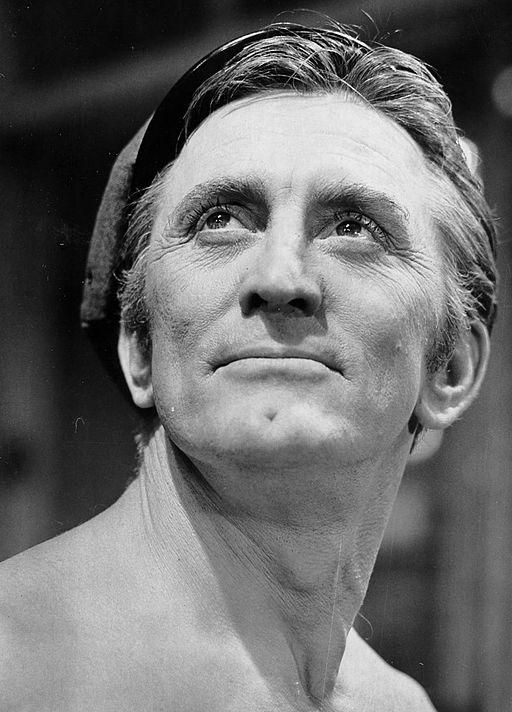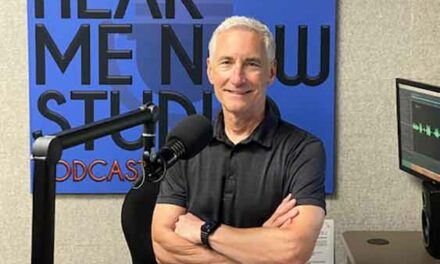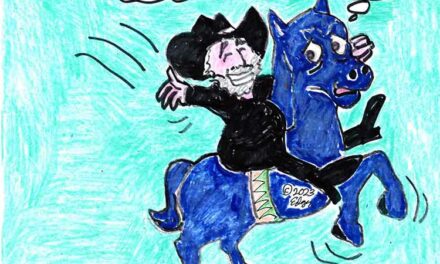Kirky Memories
By Ed Goldman
I’d like to say it was quite a coincidence that I was watching “Gunfight at the O.K. Corral” at the exact moment one of its stars, Kirk Douglas, died at 103 years old a couple of weeks ago. And I really was watching it, at that precise time. But since I watch it at least three times a year, I’m not sure this qualifies as a coincidence.
It’s simply my favorite western movie—one in which Douglas, as John ”Doc” Holliday, the legendary gambler-gunfighter-dentist (a true hyphenate, and much more colorful than writer-director-carpenter), gives one of his most flamboyant, least appreciated performances. Burt Lancaster, as Wyatt Earp, essentially plays his straight-man.
The movie holds a special place in my heart because my father took me out of my second-grade class at Public School 106 to see it when it came out. A New York City firefighter, he often had days off during most people’s workweek, then would be gone for four days and nights. I really loved spending time with my dad, who was kind and soft-spoken despite having a bass voice so low it made the Jolly Green Giant sound like his underpants were too tight.
Kirk Douglas was justly celebrated for dozens of films in which he starred, starting with film noir classics in the 1940s such as “The Strange Love of Martha Ivers” and “Out of the Past,” for his monumental, heartbreaking portrait of Vincent Van Gogh (“Lust for Life”) in the 1950s, the title role in “Spartacus” (1960), his modern military man in “Seven Days in May” in 1964, and, with frequent co-star Lancaster, as one of two “Tough Guys” (1984), their final film together.
I had two personal connections with Douglas.
One was when I saw him onstage in “The Boys in Autumn,” the adaptation of a novel that was an odd attempt to drop in on Tom Sawyer (Douglas) and Huckleberry Finn (Lancaster) as old men with troubled memories. The play, which I saw in San Francisco, apparently had been slated to head to Broadway but Lancaster wanted out, thereby ending the stunt casting that might have brought in star-struck audiences—at least until word got around that the play itself was just so-so.
So, in fact, was Lancaster, another childhood idol of mine: He simply wasn’t a stage actor, as Douglas had been, and his range of expressions seemed geared to the intimacy of close-ups rather than across the glare of footlights. Even so, as each guy made his entrance—Douglas actually drove a car onstage, arousing the attention of Lancaster, who emerged from a shack-like house—we all went loco. I mean: There were these two genuine movie stars, people we’d grown up seeing blown up to 20 times their size on the screen, now just a few feet from us (I had bought box seats at the theater at the last minute; the fact that they were available should have told me something about the play’s future viability).
Seeing Kirk Douglas up close was amazing. But bumping him from Newsweek in 2008 was surrealistic.
I had written a piece for the magazine’s “My Turn” column on the serio-comic difficulties of combining two households for what would be, both for my new wife and me, a third marriage (which came to a sad end a few years later). When the editor called to tell me the article had been accepted, I was beyond thrilled. In its day, the “My Turn” column (only 52 of which were published each year) was a major “get” for a freelance writer.
About a month before my scheduled publication date, the editor phoned me and started by saying, “I am sorry for the inconvenience.”
“Of what,” I said, more statement than question, fearing my essay was about to be dumped and already silently calculating how much of a “kill” fee I’d ask the magazine for, if it even gave one. I sensed my blood pressure was seeking out a launch pad.
“We need to run your essay a week earlier,” she said. “Will that cause you any inconvenience?”
I managed to squeak, “Of course not,” as I now could feel my blood pressure descending from the asteroid it had been threatening to visit. Then, trying to sound like the tough-minded professional I am not now nor have ever been, I gruffly asked, “What happened?”
“Kirk Douglas is what happened,” she said, a non-sequitur no one has yet to top in all of my years with the Department of Earth.
“???” I meant to say.
“He wrote a piece for us on recovering from his stroke,” she said, sensing the punctuation of my silence. “We were going to run it this week. But it needs some work so we’re holding it another week and would like to run your piece instead.”
“Let me get this straight,” I said as oxygen began to rediscover and make its way to my lungs. “You’re bumping my favorite movie star”—an Oscar-nominated actor, best-selling memoirist (“The Ragman’s Son”) and civil-liberties icon for hiring and crediting the McCarthy Blacklisted writer Dalton Trumbo for the screenplay of “Spartacus”—“for my little article?”
“Yes,” she said, a tad wearily. “Will that be all right?”
“Well, do what you must,” I said in the slightly bored tone of someone who’s confronted with decision making of this sort all the time.
Ed Goldman's column appears almost every Monday, Wednesday and Friday. A former daily columnist for the Sacramento Business Journal, as well as monthly columnist for Sacramento Magazine and Comstock’s Business Magazine, he’s the author of five books, two plays and one musical (so far).






